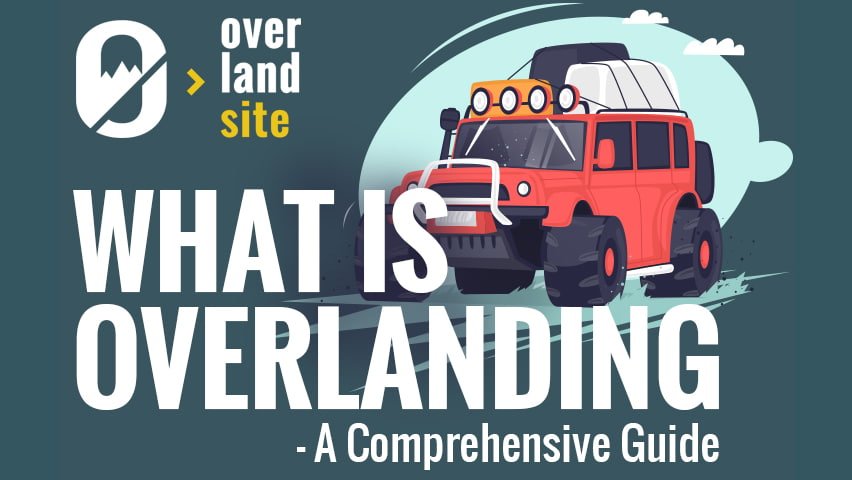
Off-Road Ranger I
But the discussion is within said circles.Not really considering I've never met one person outside these circles that has even heard of that word.

Off-Road Ranger I
But the discussion is within said circles.Not really considering I've never met one person outside these circles that has even heard of that word.
Love this...thank you for your thoughts.I have to sometimes wonder just how many people on here really want to know what Overlanding is. My wife and I became aware of Overlanding several years ago and wanted to learn more about it. We subscribed to Overland Journal and Outdoor4x (we have every issue), and joined Expedition Portal. Soon after this we ran across Overland Bound where we saw this same discussion. Back then people asked that question because they truly wanted to know what this thing is, and people responded with the intent of helping. People engaged in this subject because they honestly wanted to exchange information about the hobby, to learn and to teach. As the forum grew I noticed a change quickly taking over this question. It wasn’t long before it was about “ME”. I ask the question to impose my view on others or answer to show I am the one true expert of all things Overland. It is truly enjoyable to see that we are moving slowly back towards the exchange of information.
But, we still have the four classifications of thought here. The first is the guy who has an understanding of what Overlanding is and does not let his bias play a role in his response. Then there is the guy who understands Overlanding but can’t help letting his bias play a role in his response. Next is the guy whose bias controls his understanding of Overlanding and drives his response. Lastly is the guy who thinks his understanding of Overlanding is the only true version of Overlanding and all others who think they know are worthless scum. The first two are the guys who want to exchange information, to learn more about it themselves and to help teach others. The third guy has good intentions, I will give him credit for that, but can’t control his bias enough to be able to either learn or teach. And the last guy . . . you make your own determination.
So, who really wants to know what Overlanding really is? Let me ask this question. You go to Overland Expo (either one) and you see two tents, booths, or tables. At one is a couple that has been overlanding full time for 5, 10, 15, or more years, they have been to nearly every continent and most countries, they have no Youtube videos but have written at least one book. At the other table is a couple who got into Overlanding six months ago and have 27 Youtube videos of them in the United States. Which table are you going to visit?
I have several books from the people who would be sitting at the first table. From these books I have learned a lot about Overlanding and, although they each have their own style or interests, there are three basic things I have learn that are common to each of them.
The road one takes is the road that is required to get where you want to go. Rarely have I seen where they take a road or trail solely to be on that road or tail. They took a road or trail because it got them to some place they wanted to go. Often times it was the only way to get there but at other times there were reasons for taking a different way. One book I have is from a guy who traveled the length of Africa who, even though he could have run many dirt trails, he often preferred to run on asphalt roads instead because of the bike, or because of his skill level, or the simple fact he was traveling alone.
They stay at hotels and established campgrounds when the situation dictates. Sometimes people simply want to get a hot shower after a period of time in a hot, dusty, or muddy environment. But often times, they stay at hotels for security reasons. Many parts of the world are full of people you just don’t want to be near or authorities feel its best you aren’t near them. There are also situations where remote campsites are just not availability. Many times campsites aren’t available because too many people have come before them and abused the privilege resulting in the closure of camping areas.
And lastly, cultural stops, towns, villages, or historical sites, are an important part of Overlanding. Visiting historical sites is pretty self-explanatory. Visiting towns and villages is often time simply getting fuel and resupplying but all of the books I have read the people make a point of visiting market places to meet local people and eat at restaurants to learn about local foods. The basic ideal is how do you get to know an area without getting to know the people who live there.
After five years of being involved in Overlanding, what is Overlanding to us . . . Exploring . . . Learning

Traveler III

Traveler III
London to Singapore? How long ago was that!?!?Well said. I would generally agree with that.
The couple you mentioned reminds me of a couple I know - they went from London to Singapore in a $500 series Land Rover. Pretty amazing.

Traveler III
It wasn't all that long ago, a few years now maybe? There's a YouTube video about it:London to Singapore? How long ago was that!?!?
Last I heard an attempt was going to be made to duplicate the "First Overland" trip but all the red tape and political issues wouldn't allow it. That couple must of taken a much different route...
Thanks, I'll have to look them up.It wasn't all that long ago, a few years now maybe? There's a YouTube video about it:
Here's a full write up:It wasn't all that long ago, a few years now maybe? There's a YouTube video about it:

Traveler III
He and Mary Anne also run the BC Overland Rally, which is an outstanding event. I attended this year (2018) and it was phenomenal. Plus they're just absolutely lovely people. :)Here's a full write up:
https://gearjunkie.com/london-singapore-family-road-trip-old-land-rover-hyland
To me, THIS is overlanding. I really like the fact that they didn't feel the need to have to have all the fancy extras people seem to need. Just look at what all they took and compare that with other set ups - KISS in all its glory!
Yes, I know, what I just said will upset a few people out there, and it's just my opinion. Yet there it is, proof that ya don't need all the fancy bells-n-whistles.
Dang...just did some additional research. Ray Hyland is an actual member of "The Explorers Club", a "Fellow of the RCGS", the COO for the 'Overland Journal' as well as a contributing editor for it and the 'Expedition Portal' website.

Enthusiast III


Enthusiast III
Thanks, I will correct itYou need to fix the verb tense in your very first sentence on your graphic: The term "overlanding" originated in Australia.
Yes, this is overlanding. It is not just travel over land. It is the social, cultural experience of "camping" "exploring" areas with people, culture, food, languages that are new to you. Otherwise you are just on an expedition where you are comfortable already. The challenges of overlanding are not necessarily physical obstacles but likely cultural challenges where you learn to be an ambassador for the society you come from and figure out how to interact with people you are unfamiliar with.It wasn't all that long ago, a few years now maybe? There's a YouTube video about it:

Member III
17011
